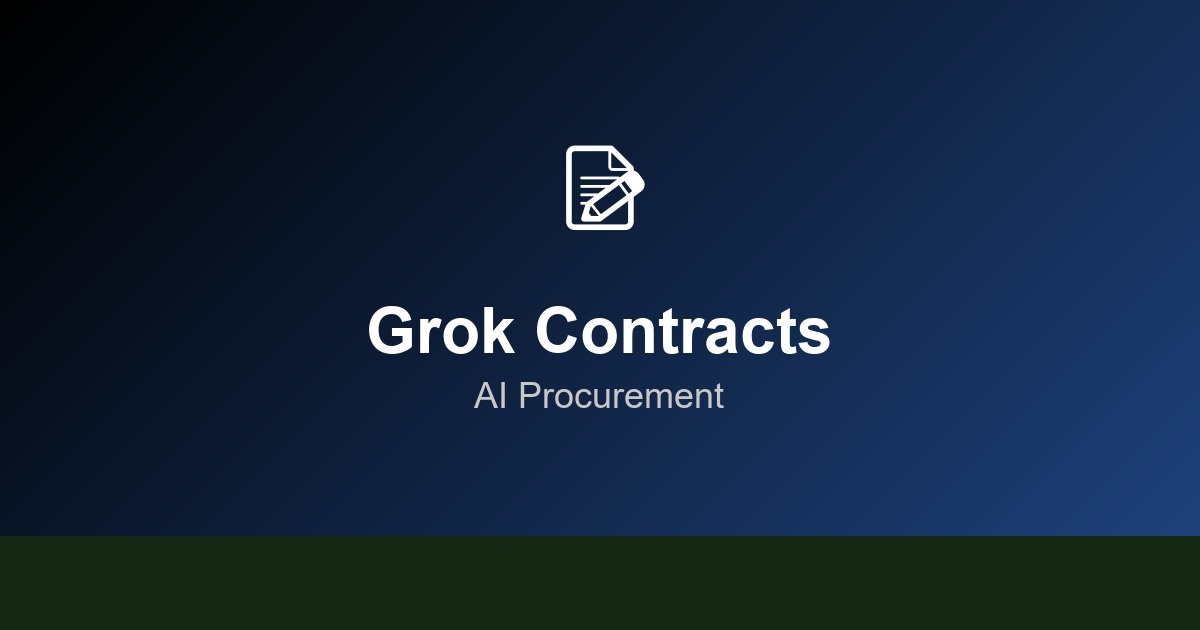The $200M Grok Contract: A Wake-Up Call for Enterprise AI Procurement

Senator Elizabeth Warren's recent criticism of the Pentagon's $200 million contract for Grok, an AI chatbot, has ignited a crucial conversation for enterprise leaders: **how do we ensure AI investments deliver tangible ROI and strategic value?** This isn't merely a political debate; it's a stark reminder of the complexities and potential pitfalls in integrating advanced AI solutions into large organizations.
Senator Elizabeth Warren's recent criticism of the Pentagon's $200 million contract for Grok, an AI chatbot, has ignited a crucial conversation for enterprise leaders: how do we ensure AI investments deliver tangible ROI and strategic value? This isn't merely a political debate; it's a stark reminder of the complexities and potential pitfalls in integrating advanced AI solutions into large organizations.
The Enterprise Imperative: Beyond Hype to Measurable Outcomes
For enterprise businesses and decision-makers, the allure of AI is undeniable. From optimizing supply chains to enhancing customer experience, the promise of transformative efficiency and innovation is a powerful driver. However, the Grok contract controversy underscores a critical challenge: the gap between perceived technological capability and demonstrable business impact.
When considering significant AI investments, particularly those reaching nine-figure sums, the focus must shift from simply acquiring cutting-edge technology to meticulously defining and measuring its contribution to strategic objectives. Without a clear framework for ROI, even the most advanced AI can become a costly experiment rather than a competitive advantage.

Key Considerations for AI Procurement in the Enterprise:
1. Clear Use Cases and Business Objectives: Before any procurement, articulate precise problems AI will solve and the measurable outcomes expected. Is it reducing operational costs by X%? Improving decision-making speed by Y? Enhancing security posture by Z? 2. Vendor Due Diligence and Proven Track Record: Evaluate vendors not just on their technology's features, but on their ability to deliver results in similar enterprise environments. Demand case studies, verifiable metrics, and robust support structures. 3. Scalability and Integration Strategy: How will the AI solution integrate with existing infrastructure? Can it scale to meet future demands? A fragmented or difficult-to-integrate solution can negate its benefits. 4. Security, Compliance, and Ethical AI: For sensitive sectors like defense, and increasingly for all enterprises, data security, regulatory compliance, and ethical AI principles are non-negotiable. Thoroughly vet these aspects. 5. Total Cost of Ownership (TCO) and Long-Term Value: Beyond the initial contract, consider ongoing maintenance, training, customization, and potential future upgrades. A lower upfront cost might hide significant long-term expenses.
Learning from the Pentagon's Predicament
The Pentagon's situation, as highlighted by Senator Warren, serves as a cautionary tale. While the specifics of the Grok contract are still emerging, the public scrutiny emphasizes the need for transparency, accountability, and a rigorous ROI-driven approach to AI adoption. For enterprise leaders, this means:
- Establishing robust governance: Implement clear policies and processes for AI evaluation, procurement, and deployment.
- Empowering cross-functional teams: Bring together IT, business units, legal, and finance to ensure a holistic assessment of AI solutions.
- Prioritizing pilot programs: Start with smaller, well-defined pilot projects to validate assumptions and gather data before committing to large-scale deployments.
In the rapidly evolving landscape of artificial intelligence, the ability to discern genuine value from technological spectacle is paramount. The $200 million Grok contract debate is a powerful reminder that for enterprise AI, success is not just about having the best technology, but about strategically deploying it to achieve measurable, impactful business outcomes.
References
- Industry research and analysis from leading AI technology providers and research institutions.
- Enterprise AI implementation case studies and ROI analysis from Fortune 500 companies.
- Market research reports from Gartner, McKinsey, and other leading consulting firms on AI adoption trends.
- Technical documentation and whitepapers from AI platform vendors and service providers.
- Regulatory compliance frameworks and guidelines for AI implementation in enterprise environments.
Ready to Implement AI in Your Enterprise?
Our team of AI experts can help you navigate the complex landscape of AI infrastructure and implementation. Book a free consultation to discuss your specific needs.
Book Free Consultation